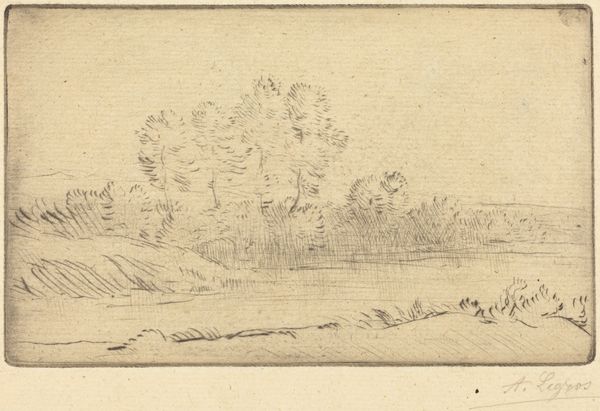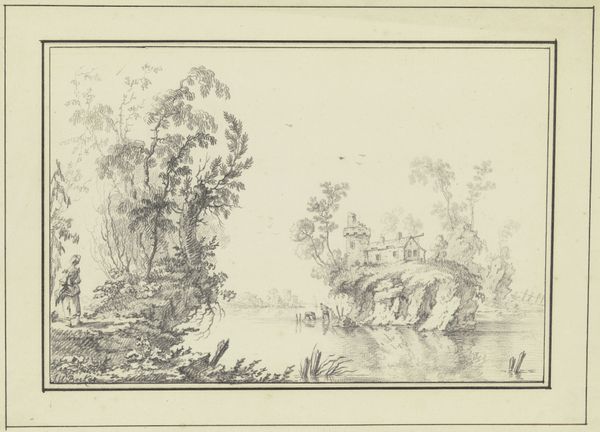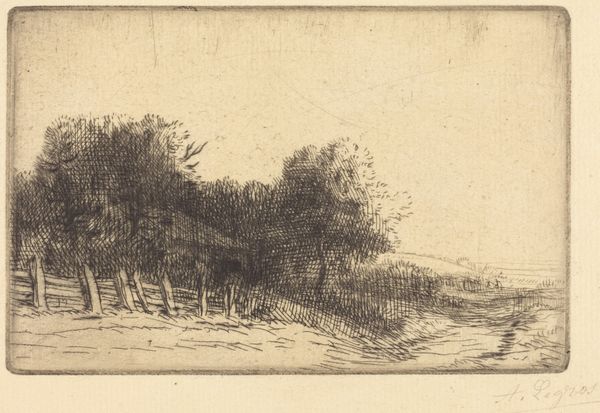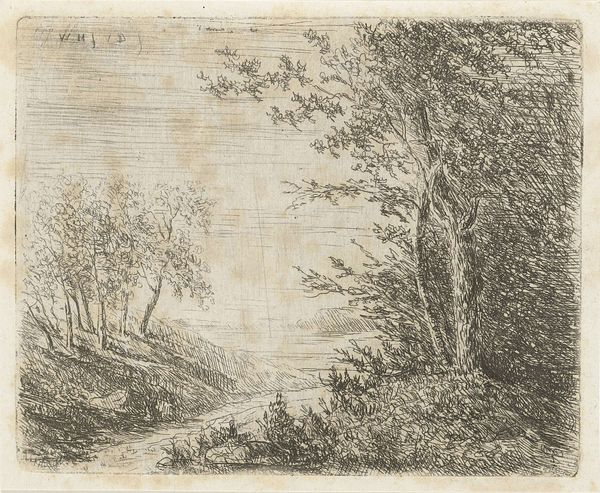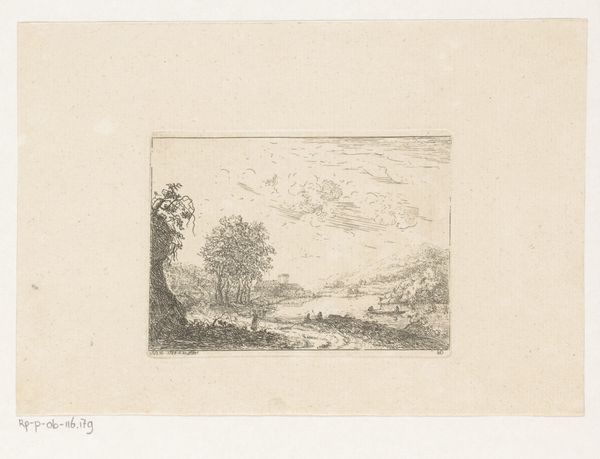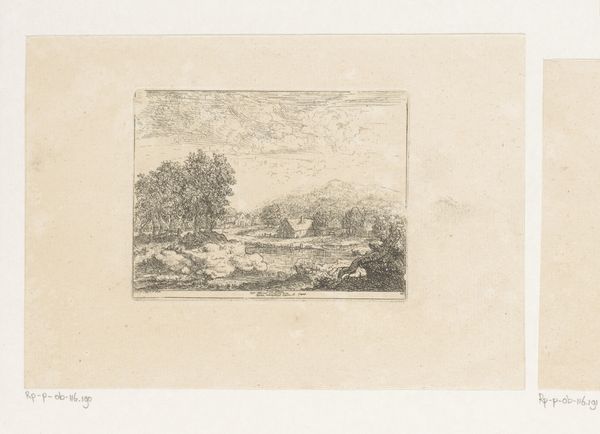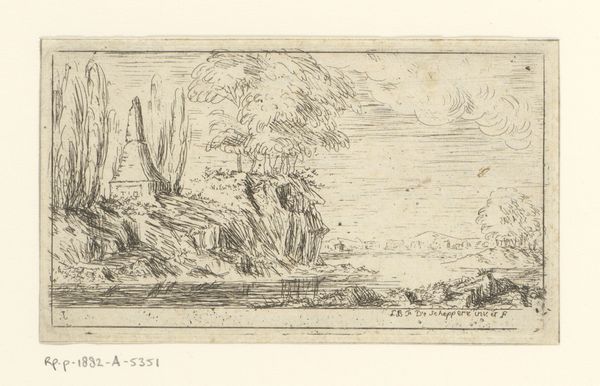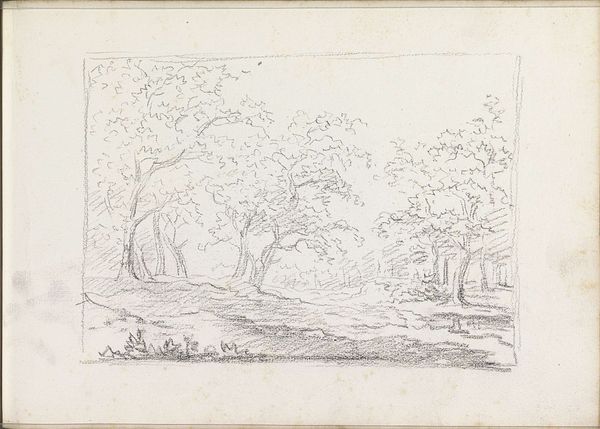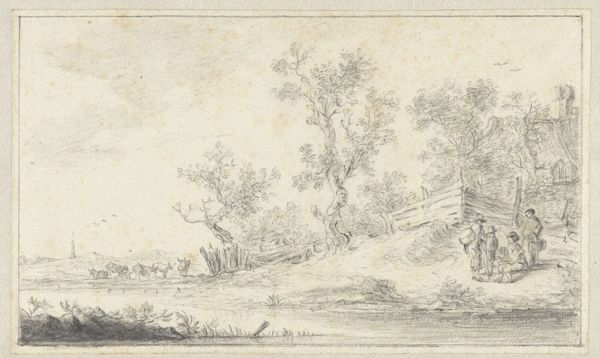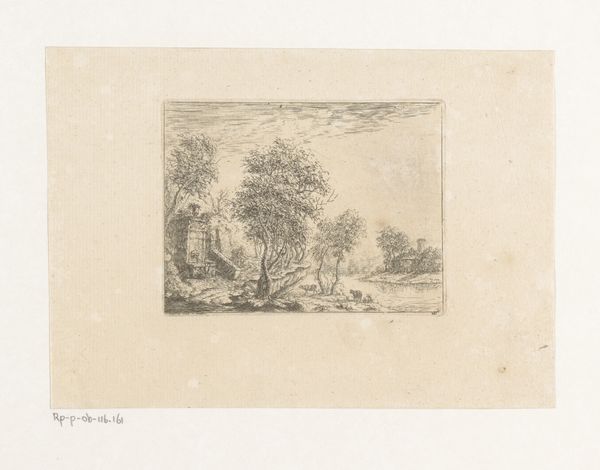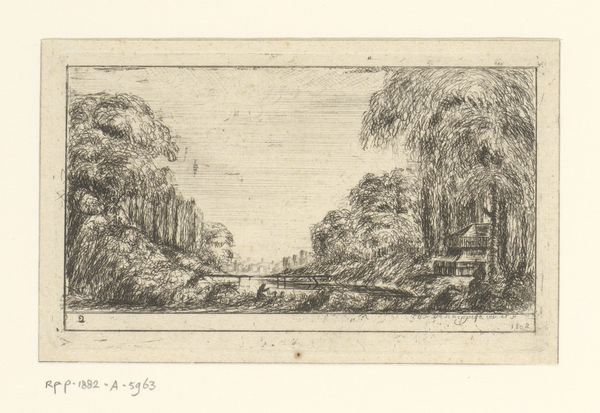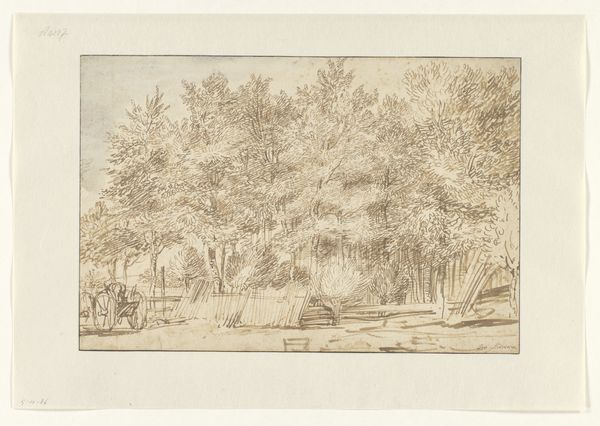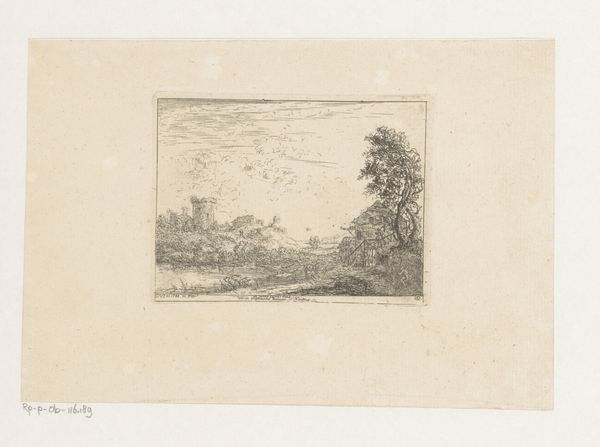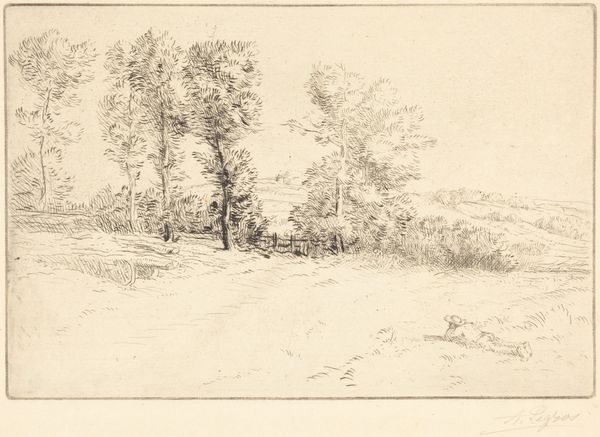
drawing, etching
#
drawing
#
etching
#
landscape
#
etching
#
romanticism
Dimensions: height 99 mm, width 165 mm
Copyright: Rijks Museum: Open Domain
This landscape with a tomb to the right of a bridge was made by Louis Benoît Ferdinand de Scheppere, likely in the late 18th or early 19th century, using etching. Look closely, and you can see how the linear quality of the etching process perfectly suits the subject. The artist has used the incisive lines to capture every detail of the scene, from the rough texture of the trees to the smooth surface of the water. The etching process involves covering a metal plate with a waxy, acid-resistant layer, and the artist scratches away the lines of the image through this layer, exposing the metal. Then, acid is applied, which bites into the exposed lines. The plate is inked, and then printed. It's a process that demands skill, precision, and physical labor. The resulting print invites us to consider the relationship between nature, culture, and mortality. It reminds us that even in the most idealized landscapes, death is always present. By emphasizing the material and making of the print, we can appreciate not only the artistry of the image, but the social and cultural context in which it was created.
Comments
No comments
Be the first to comment and join the conversation on the ultimate creative platform.
